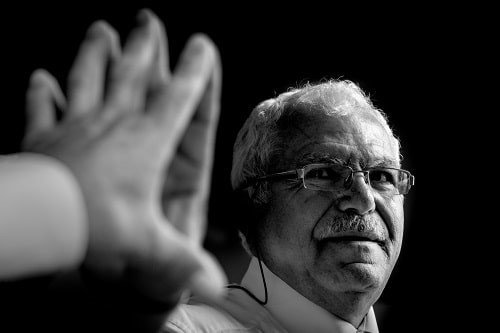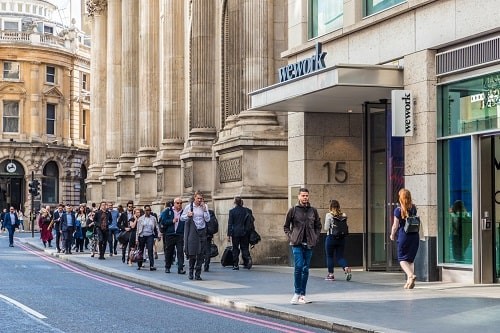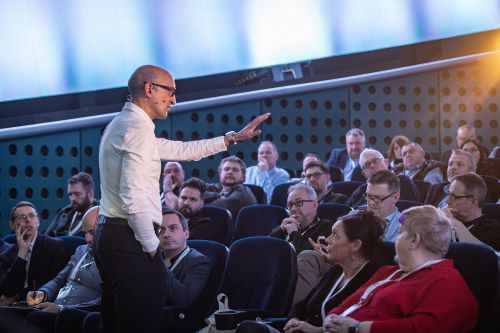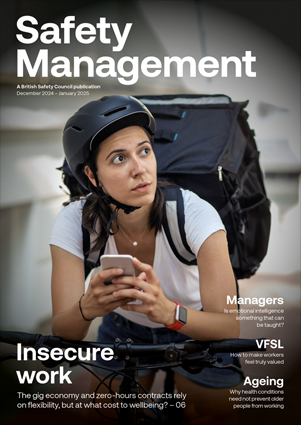What is authentic leadership and what can authentic leaders do for teams and workplace culture?
Features
Keeping it real
Executive vice-president Bill George thought he had it made. A big salary, a happy family life. But something didn’t sit right. And one day, driving home after work, he recalls:
“I looked in the mirror and thought, what are you doing? I was grabbing for CEO, that brass ring instead of being who I was. I was even wearing cufflinks. I was trying to make an impression, but inside I was miserable. I was faking it to make it.”
 Authentic leaders are genuine and truthful. Photograph: iStock
Authentic leaders are genuine and truthful. Photograph: iStock
Authentic leadership has been an influential idea in business schools since Bill George had his road to Damascus moment and wrote the 2003 book Authentic Leadership.
It is based on the idea that all the tools you need to lead, you already hold – it’s about being genuine and truthful. But more than that, it proposes a modern alternative to the leader who emphasises profit and share price over people and ethics.
So what is authentic leadership and what can authentic leaders do for teams and workplace culture? When we look at the behaviour of politicians and how they are rewarded – or not – for being ‘themselves’, there is no doubt that authenticity is having a moment. And in the workplace too, true authentic leadership seems to offer a solution to the unique challenges we face in our changing world of work.
Advantages of authenticity
Firstly, what does being an authentic leader mean? Mark Jackson, site director and MD of Merck Life Science UK Ltd (part of Merck KGaA), tells us: “Authenticity is being yourself, not someone you’re not – and that’s for good and bad. It’s about being honest, being open to change and to learn and develop – being who you are. It’s to do as you say, don’t say one thing and do the opposite.”
What are its advantages? On a fundamental level, bringing your authentic self to a situation such as a team meeting encourages good communication, says Chris Moriarty, director at Audiem, a workplace experience analytics engine. Chris comes at authenticity from a more spiritual viewpoint. “There’s an element of presence about it, I don’t mean gravitas, I mean being there in the moment. It’s about being able to understand another person’s perspective, because if you’re responding in a very transactional way, are you being authentic? Because all you’re doing is waiting to say what you wanted to say in the first place. It’s about listening.”
 Bringing yourself to a situation such as a team meeting encourages good communication. Photograph: iStock
Bringing yourself to a situation such as a team meeting encourages good communication. Photograph: iStock
You don’t need to have all the answers
Being authentic also means not being afraid to look ‘bad.’ A good leader isn’t afraid to recognise that others may have strengths they lack. This enables them to nurture those strengths, which ultimately benefits the team and the work you are all aiming to do. “One of the top misunderstandings of leadership is a need to have all the answers,” explains Susie Ramroop, work coach, speaker and author of the book, Be The Leader You Want To See. “Actually, the best leader is one who doesn’t have the answers and seeks them from their team. Asking great questions is the most powerful tool of a great leader.”
On the other hand, being defensive and brittle about inadequacies can be brutal for team morale: “Having the answers can mean people on the receiving end feel unvalued and unheard, their creativity stifled, and their confidence trampled upon.”
Challenges with being authentic
So, why is being authentic so hard to do? Partly, we’ve been fed a diet of unhelpful messages about ‘faking it to make it’ says Susie. “It comes up in every talk I give on impostor syndrome, and while I used the [fake it to make it] approach myself for a while, I came to see what terrible advice it is!” As she writes in her book: “Someone who is faking it never makes it. They put an awful lot of energy into being a certain way because it is deemed more acceptable. It may even bring results in the short term, but they will never own their success this way.”
 Susie Ramroop: "The more people who are real, the more encouragement there will be to be real."
Susie Ramroop: "The more people who are real, the more encouragement there will be to be real."
There’s also an image that we may feel we have to live up to as a leader. Mark says it has taken courage to speak about mental health: “I think it’s not expected for a senior person to talk about their being vulnerable because you’re seen as ‘you got there by being strong’ and nothing goes wrong.”
Find your purpose
Being authentic is also hard to do because of the competing pressures that a leader faces daily. Business opportunities, deadlines, global changes like the pandemic, staff shortages or burnout – the burden is on their shoulders. It can be easy to lose sight of the main goal among all these distractions, says Chris, who recently watched a gripping documentary on the WeWork founder, CEO Adam Neuman.
Neuman’s mission to ‘change the world of work’ saw him gaining almost a cult status among employees.
But the company share price lost $47 billion in six weeks when Neuman started to chase the money and lost the original vision. “I think the problem was that he became inauthentic to himself and what was driving him and drove that success,” says Chris. “And I think people sense that, they have a nose for when things don’t feel like how they used to.”
What the WeWork story illustrates is purpose, and how integral it is to authentic leadership. Returning to the writer Bill George, he says: “[Authenticity] is having a purpose. Making money is not a purpose.” Speaking to Nick Craig for his Core Leadership podcast series, he went on to say that a “leader’s purpose must be aligned to the company goal and it must be a worthy purpose.”
 WeWork offices in Bishopsgate in London, 2019. Photograph: iStock
WeWork offices in Bishopsgate in London, 2019. Photograph: iStock
Employees seek meaningful work
Purpose is especially important, we would argue today. In a new report by Headspace Health, it was found that only 28 per cent of employees say they feel ‘very engaged at work’. Further, 45 per cent said that being recognised for their work was the biggest factor in their wellbeing.
The report theorises that the high turnover that has impacted the UK and US, known as the ‘Great Resignation’ is now becoming the ‘Great Reshuffling’ with talented people heading for better work.
They’re searching for more than just jobs, their search is ‘much more purposeful’. “Many are seeking careers that inspire them, workplaces that motivate them, and employers that make the effort to know them,” it says.
It means when we talk about purpose, we are not just talking about cause-related businesses, such as charities. People – young people in particular – want to work in an organisation that is making the world a bit better, whether through their sustainable practices, ethical values, or to just to deliver a good service.
 Employees are increasingly valuing purpose above any other factor as the biggest determinant of their wellbeing at work. Photograph: iStock
Employees are increasingly valuing purpose above any other factor as the biggest determinant of their wellbeing at work. Photograph: iStock
For Mark, the purpose is to remove barriers around mental health and help people see health and safety as an enabler: “You’ve got to ask [as a leader] what’s your story, what are you trying to do? You’re not trying to say no all the time, in fact you’re trying to keep people safe and build a culture where people feel they can be open and share.”
Setting boundaries
How far do you go with authenticity? Finnish Prime Minister, 36-year-old Sanna Marin, recently came under fire for videos released of her dancing with her friends. Regardless of the rights and wrongs of that private moment being leaked, being authentic doesn’t have to involve performing karaoke at the work party, says Susie. “When we say it’s OK to bring your whole self to work, people immediately think of the most inappropriate version of themselves at 3am on a Sunday morning. That’s not what we’re talking about. There are a lot more sides of you that can be introduced to work long before you get to that extreme.”
At work, authenticity involves setting boundaries of what you are comfortable in revealing – that could mean your personal interests or life struggles you are going through. In a work context, authenticity is about being passionate about what you are trying to achieve and honest when things get tough. As Susie says: “Being more honest about your emotions, taking the time to show you care even if you are up against a deadline, talking about what you’d love to see rather than overusing your brain to rationalise what the right thing to do is. Leaders have a duty here to demonstrate this behaviour.”
 At work, authenticity involves setting boundaries of what you are comfortable in revealing. Photograph: iStock
At work, authenticity involves setting boundaries of what you are comfortable in revealing. Photograph: iStock
Authentic leadership is also not just saying the right things. The consequences of saying one thing and doing a different thing can be toxic for workplace culture. According to Chris, this can create “massive chasms in culture, gossip and backchatting, a culture that permeates down of mistrust”.
Maybe it’s so hard to be authentic because it’s counter intuitive. It involves owning up to mistakes and even celebrating them as the bringers of wisdom and experience.
Regardless, authenticity is something we can all strive for, and it’s even catching. “The more people who are real,” says Susie, “the more encouragement there will be to be real, it’s as simple as that.”
On a wider level, societies are crying out for good leaders. We all want a Zelensky in charge. In this regard workplace cultures are no different from any society of individuals and they too want to have leaders they can trust, who are authentic. It is those leaders who can build strong teams, get people working together under a shared mission. And it’s to those sorts of leaders that people will turn to in difficult times. Not the ones who make false promises.
FEATURES

Emergency evacuation for people with mobility issues: why we must do better
By Gerard Wallace, Evac+Chair International on 01 August 2023
With research revealing poor understanding among many businesses of their duty to have arrangements in place to safely evacuate mobility-impaired people, it’s time for the government to educate building owners about their obligations and mandate the provision of evacuation equipment, to ensure a safe evacuation for everyone.

Establishing a company culture of safety
By Driving for Better Business on 01 November 2024
Collision prevention takes growth mindsets, psychological safety and a ‘just’ culture, delegates at the recent National Highways ‘Driving Change’ conference heard.

Driver fatigue: always minimise the risk
By Driving for Better Business on 01 November 2024
Research shows that driver fatigue may be a contributory factor in up to 20 per cent of road incidents, and up to one-quarter of fatal and serious incidents.



